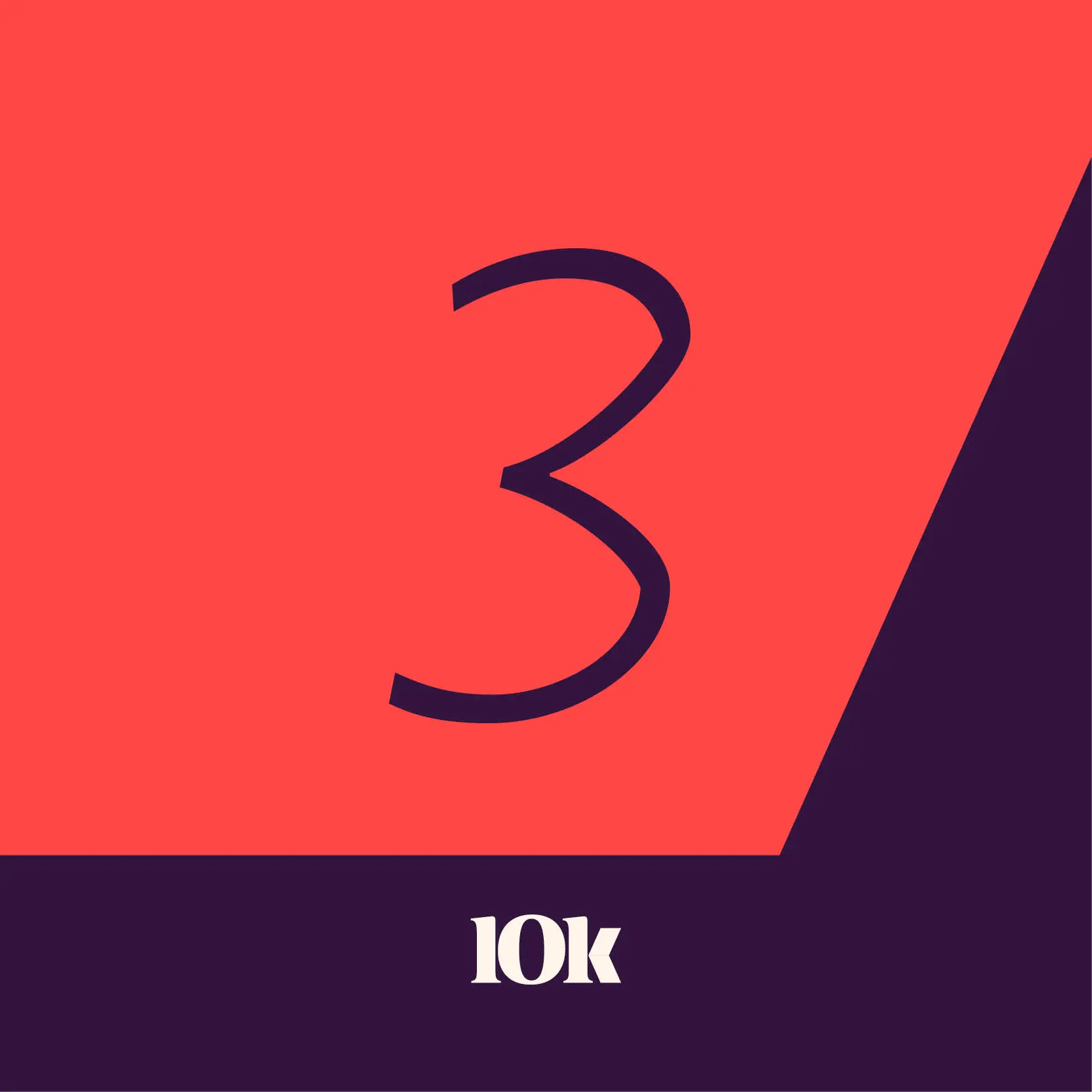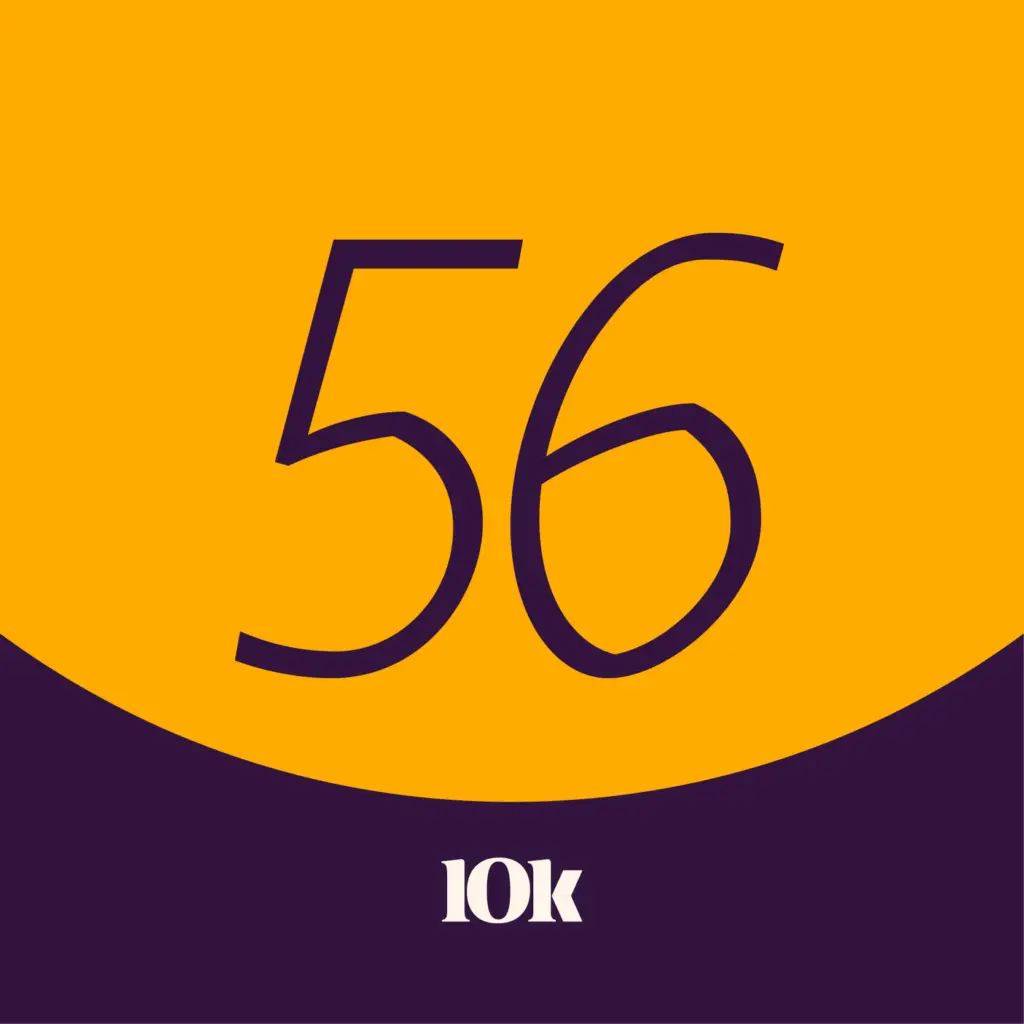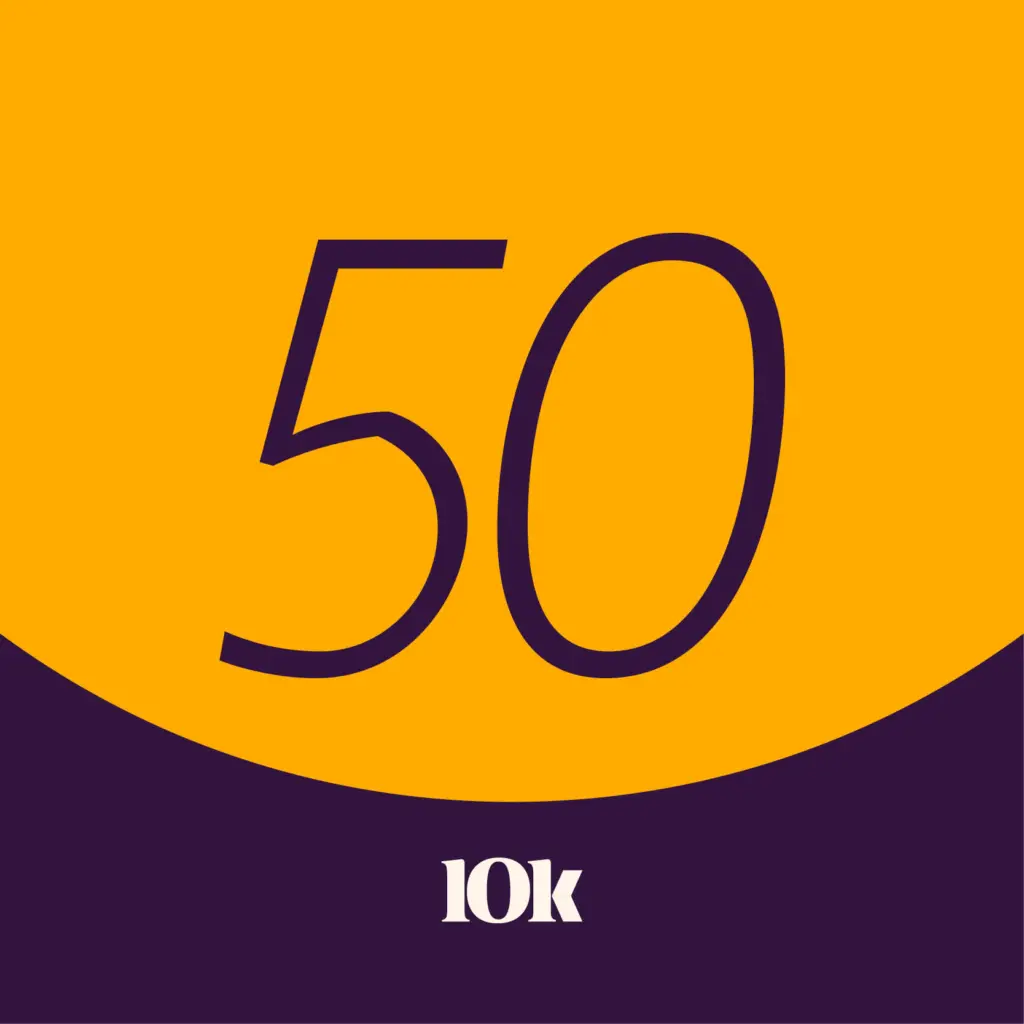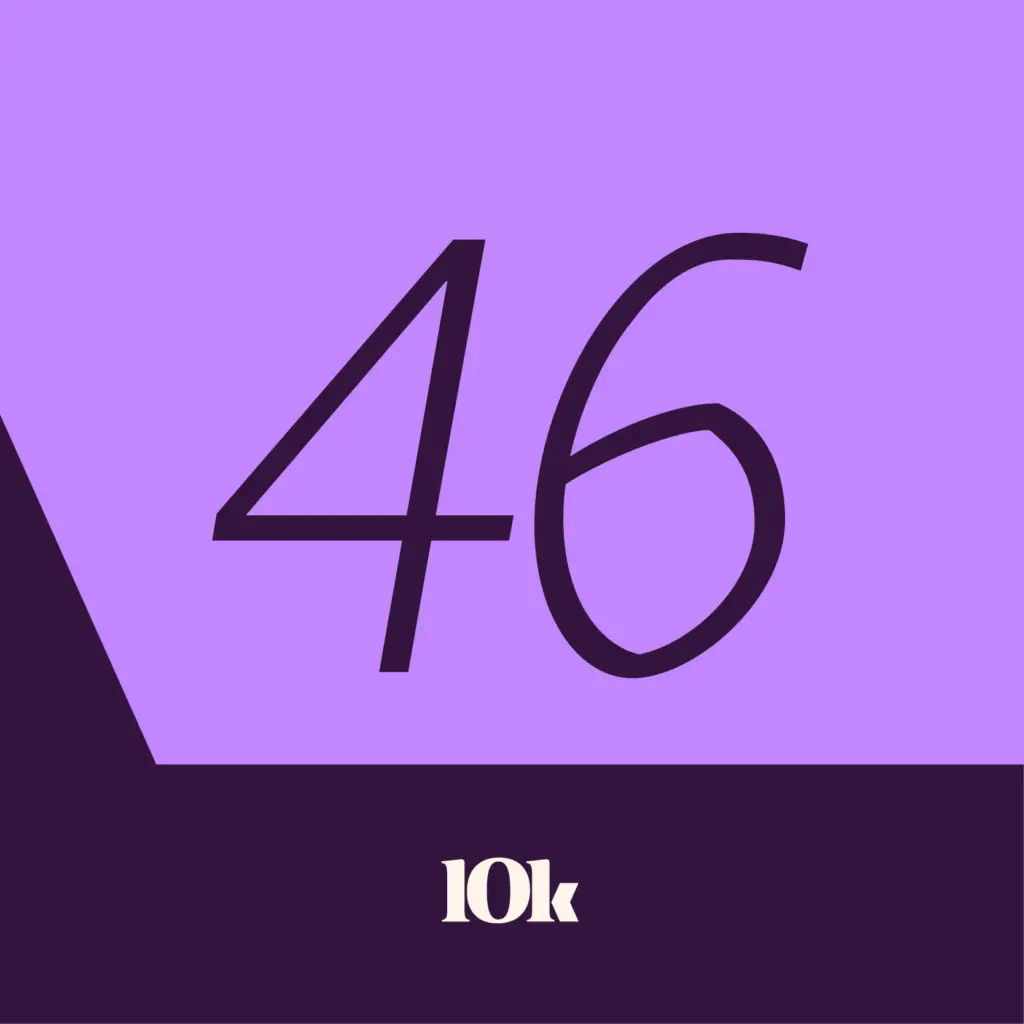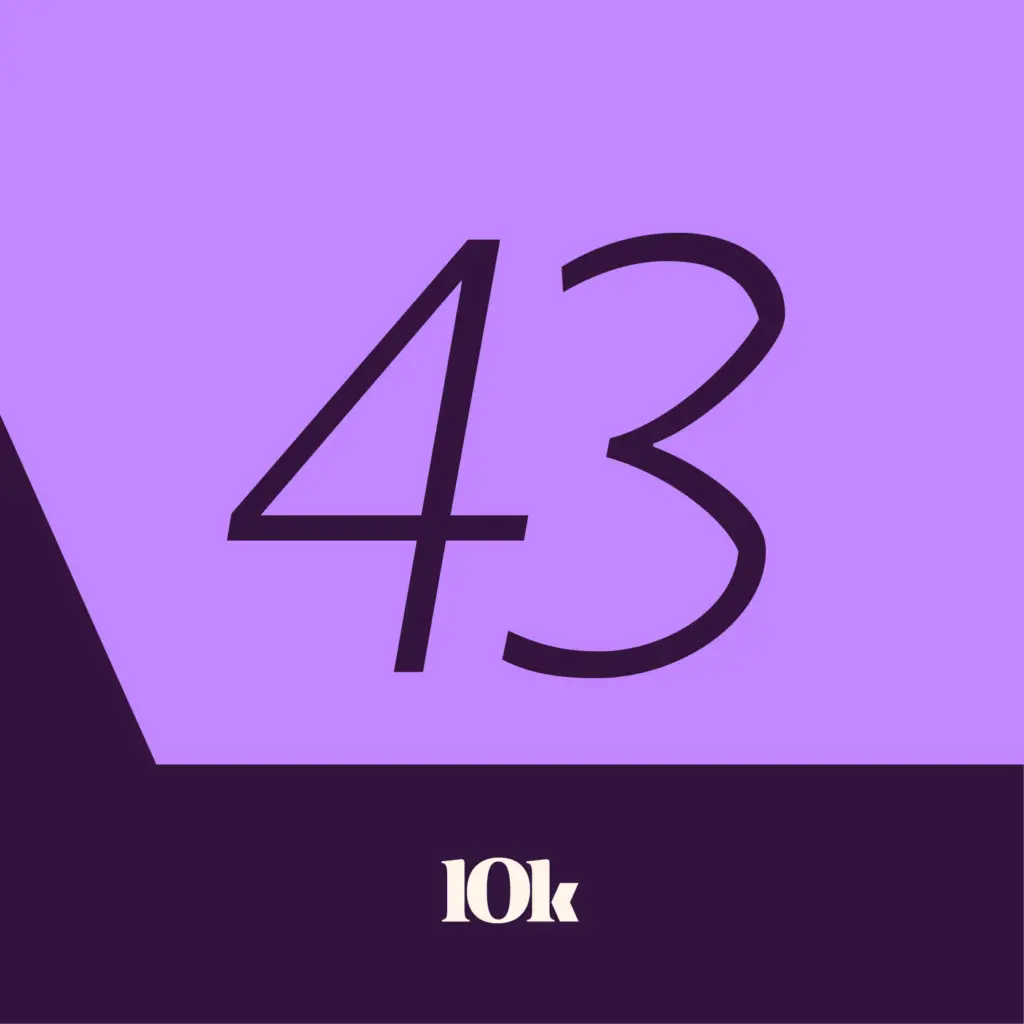If what you’re building today is front page news tomorrow, how are you going to feel about that?
As business models evolve and data becomes a primary method of currency, the decisions we make as product creators become ethical considerations. What data are you collecting and why? How do your users know what you intend to do with it? And most importantly, how does that align to your company’s values? It’s 2019 and this is a necessary, emerging conversation in the world of product design.
On this episode, we chat with Vervint Design Leads, Molly Hillstrom and Brian Hauch, who have plenty of experience helping companies strategically and practically create digital products. Molly recently spoke on this topic at World Usability Day, if you’re interested in hearing more.
While ethics can feel ambiguous and a bit abstract, Molly and Brian share some relevant examples and give you a few considerations as you build out an ethical framework for your product teams.
Enjoy!
If you’re curious, here is that beautiful Parcheesi game Molly mentioned at the end:
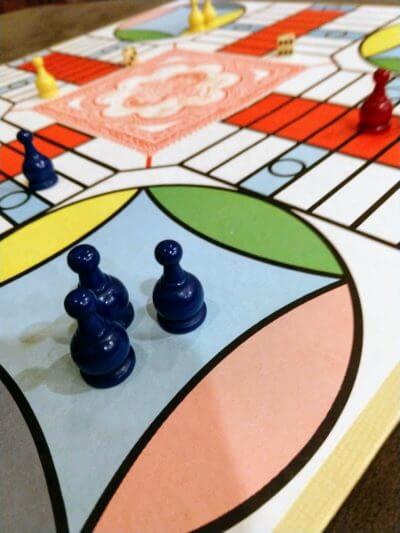
This podcast content was created prior to our rebrand and may contain references to our previous name (OST) and brand elements. Although our brand has changed, the information shared continues to be relevant and valuable.
Episode Transcript
Lizzie Williams: Hey, everybody. On this episode of Ten Thousand Feet, we have two of OST’s design leads, Molly Hillstrom from our Minneapolis office and Brian Hauch from the Grand Rapids office. The three of us are going to be talking about design ethics which is a growing trend and concern in the design and product development space right now so let’s get into it.
I am excited about this topic. I believe this stemmed from a talk that you gave, Molly, is that right?
Molly Hillstrom: Yes.
View Full Transcript
Lizzie Williams: Can you tell us a little bit about it?
Molly Hillstrom: Yeah, I spoke at a conference for designers and I did a talk on design ethics in a digital world and how we as designers have responsibilities to build ethical products for our communities.
Lizzie Williams: And this is a topic you’re interested in as well, Brian?
Brian Hauch: It is. It’s surprisingly a hot topic right now–
Lizzie Williams: Okay.
Brian Hauch: –within the design community. There’s a lot of books being written, a lot of conversations being had.
Molly Hillstrom: A lot of things in the news.
Brian Hauch: Yes, a lot of things in the news and when this first started to happen I was like, “What a strange concept, design ethics. Where does that come from?”
Lizzie Williams: Yeah, it sounds a little abstractive for us, doesn’t it?
Brian Hauch: It does and design is pretty abstractive.
Molly Hillstrom: Yes.
Brian Hauch: Ethics of designs even more.
Molly Hillstrom: Maybe we should talk a little bit about what we mean by design ethics.
Brian Hauch: That would be good.
Molly Hillstrom: Yeah, because I think there’s talk about what makes an ethical company but I think what we’re talking about is more what makes an ethical product and what are the decisions going into that product that makes it ethical or unethical?
Brian Hauch: Yeah and even there, what are the boundaries of a product? Is it the experience? Is it the strategy? Is it the thought that goes into it? It’s a fascinating topic and I think as we create more and more things in this society, it’s a bigger topic. I’m trying to envision where is this going down the road, right? What are the implications of this?
Lizzie Williams: So, what are some of the ways that this has presented itself in the news for example?
Molly Hillstrom: Well, Facebook has been in the news a lot lately for the way that they share data, the way that they moderate their communities and there’s been some infiltration from nefarious parties that have made the experience challenging for people, I would say.
Brian Hauch: Yeah and even Facebook is a really good example with the Cambridge Analytica–
Lizzie Williams: Yup.
Brian Hauch: –thing that blew up this past year and on some level, when people sign up for Facebook they’re agreeing that people can access their data and it wasn’t so much that Facebook sold the data but that Cambridge came in and purchased the data from Facebook. As a user, you have to think like who might come in and want my data?
Molly Hillstrom: Yeah and I think data is abstract to consumers as well. I think a lot of people are now comfortable with the fact that advertising-based businesses are using your data, collecting data. That’s how it works. But how do you know what they’re doing with that data and exactly what are they collecting and I think we’re all still really in the dark about that unless you want to dig in the terms and conditions which are really, really difficult for a layperson to read.
Brian Hauch: Yeah, who reads those?
Lizzie Williams & Molly Hillstrom: Nobody.
Molly Hillstrom: 99% of people agree to terms and conditions without agreeing to them.
Lizzie Williams: Yeah. One thing that comes to my mind too is just people’s interactions and their passion or their distrust for even though the DNA tests that are out right now too as far as I’m willing to give you this to find out this information but at the end of the day I don’t know what it’s being used for.
Molly Hillstrom: Right. Because how could that be potentially used against me in the future in a way that I’m not prepared for?
Brian Hauch: Uh-hm.
Lizzie Williams: How are we seeing that play out in companies that we’re working with for example?
Molly Hillstrom: Well, I would say that we are trying to build awareness around decisions that companies make. Things like whether or not you collect data and what types of data you collect. Making really intentional decisions around that that maybe line up with the companies’ strategy, their values, their mission statement, whatever it is making sure that they also have sort of an ethical framework to help them make decisions around those types of things.
Brian Hauch: Yeah. If you are a company and you’re making a connected product–
Molly Hillstrom: Yeah.
Brian Hauch: –and you want to make an app for your connected product, you’re going to want data on your users, you’re going to gather data on your users and what is your strategy for that data because no longer is it the users just coming in to buy your vacuum. They’re not coming in to buy your air purifier and then the relationship ends but really it only begins because it’s at that point that you start collecting. In this case, how do people use this? Are people using this? When did they use this – and then the company starts to get to know more and more and more about their users. That’s where the implication comes in as what does the company do with that data? Sometimes they probably do nothing.
Lizzie Williams: Yeah.
Brian Hauch: Which is too bad because you’re spending all that money to learn that but then you sit on that data. You want to use that data but that’s sort of the push-pull. How do you use that data after you collect it?
Molly Hillstrom: And I think the long-term game is an important one there because there are ways of doing design, that can get you short term success. If you are just really trying to gather email addresses, you can do that in ways that are somewhat unethical. You can gather them from a form that tricks people into thinking they’re signing up for something else. There are just all ways that you can get that data but in the long run, people will rebel against you if you’re doing things that way.
Brian Hauch: Yeah, the whole – it’s like snake oil.
Molly Hillstrom: Right.
Brian Hauch: Like, the bait and switch. If you sign up for this we’ll give you this but we’re actually going to use it for that.
Molly Hillstrom: Yeah, absolutely.
Brian Hauch: That’s where transparency comes in and transparency is another huge theme within design.
Molly Hillstrom: Yeah and I love the snake oil comparison because a lot of this stuff is based in humanity like con-artists have been around since the beginning of time, right? And now, we’re just expressing that in a digital way and so as designers we can be that interface between our companies and the consumers using the products to make sure that we’re doing things in a way that will help people as opposed to trick them.
Brian Hauch: I think that’s a really great point in that. That’s why design ethics as important–
Molly Hillstrom: Yes.
Brian Hauch: Because designers often find themselves at this inflection point between the company and the user trying to create an experience and in some ways, they’re the last stop gap. And how do you shape an experience?
Molly Hillstrom: And designers are really powerful. We have all sorts of tools and skills at our fingertips that can manipulate people. We know how to use the powers of design to get people to do certain things. And so if we’re going to manipulate people like that, then we need to know exactly what the outcome of that is going to be.
Brian Hauch: And manipulation might be, it’s kind of a big word.
Molly Hillstrom: It is.
Brian Hauch: I think designers are storytellers.
Molly Hillstrom: Yeah.
Brian Hauch: And when you tell a story you have intent behind that story.
Molly Hillstrom: Yeah.
Brian Hauch: And you just have to make sure that you’re being transparent with what your intent is and you’re not doing the bait and switch.
Molly Hillstrom: Yeah, an example of this would be LinkedIn had a dark pattern in the early days where they–if you walk through the sign-up process–
Lizzie Williams: Uh-hm.
Molly Hillstrom: –it gave you this list to what first it asked you to give them your email address and enter your password so that they can look at all of your contacts so that you can build your professional network.
Lizzie Williams: Oh, yeah.
Molly Hillstrom: But it defaulted everything to on, so that you would send– you’re basically were spamming everybody that you have ever emailed in your entire life. I don’t know if you remember those emails that came through so and so invited you to join LinkedIn.
Lizzie Williams: Oh, yeah.
Molly Hillstrom: They could send I think up to three just based on that tiny little line of text when you click add to network.
Lizzie Williams: Uh-hm.
Molly Hillstrom: That’s an example and they actually were sued for this in California and it was a class of action lawsuit that was in favor of the consumers so LinkedIn lost, and that’s what I mean by these long term approaches are better than this short-term like we need to get more people in here’s a way for us to do it. That ultimately backfired on them.
Brian Hauch: It’s a, I remember all the poor people I sent emails to back in the day.
Molly Hillstrom: Yeah, it was easy–
Lizzie Williams: I think we all did it.
Brian Hauch: Yeah, I know.
Lizzie Williams: It’s like you didn’t even know.
Molly Hillstrom: And these are really big companies that are making these kinds of decisions. When we talk about the snake oil then you think of some guy that’s just in a dark corner or somewhere trying to sell you something but when large companies are taking strategies like this to trick people into doing something that helps their business objective but actually works against user needs then that’s a problem.
Brian Hauch: And part of that I think is that maybe it isn’t that companies are looking to be malicious but everyone is looking to do well at whatever they’re being measured against.
Molly Hillstrom: Yeah, that’s a good one.
Brian Hauch: When we talk a bit about this where you have KPIs. Everyone has a KPI and if everyone.
Molly Hillstrom: Key performance indicators.
Brian Hauch: Right and if everyone strives to optimize how they’re being measured.
Molly Hillstrom: Right. If my boss says to me, we need to gather as many email addresses as we possibly can, I’m going to design something that is just intended to do that one thing without really thinking about to the objectives that might be driving that or the user needs that might be above that. I know that my performance is based on this one thing that my boss asked me to do. I’m going to laser focus in on that thing in particular and I’m missing so many other opportunities in the process by doing that.
Lizzie Williams: How do we do that better?
Brian Hauch: I think it’s looking at things holistically–
Brian Hauch: –which gets back to the purpose of the company, their strategy to make sure that they’re thinking about things holistically and that’s partly why experience design is so difficult because you’re looking at things holistically. How do you connect the dots between all these touchpoints to build something bigger? And just to have that mindset at a corporate level, at a manager level to make sure that this thing that we’re building holds together and creates something valuable.
Lizzie Williams: Are you seeing the trends for– to have these dialogues around company ethics translating into design ethics from the top down?
Molly Hillstrom: I haven’t yet myself and so I have personally kind of written my own ethical framework for what are the things that are important to me in the world, where do I want to put my efforts towards things and what companies align with that basically. In some ways, I’m taking a backwards approach to it.
Lizzie Williams: Right.
Molly Hillstrom: But I think I would love to see companies do more of that. Where they express their mission and their values or whatever pillars they have into a framework that they can then use to make decisions.
Lizzie Williams: Uh-hm.
Molly Hillstrom: I think that could be really valuable for everybody.
Brian Hauch: Yeah, there’s always this push-pull between ideally if designers can take accountability.
Brian Hauch: –for what they have and then from the start at the bottom up and then from the top down to have decision making and awareness there for the companies that you’re building something positive.
Molly Hillstrom: And I’ve had some fairly skeptical people come up to me and say this is capitalism. No one’s ever going to do this because companies are just there for their bottom line. They’re just there to make money and I fundamentally disagree with that. Because corporations are made up of people and we all have the ability to have empathy and think about how the products that we’re building are going to impact our world and so I think having that personal responsibility, that accountability behind you I think. I don’t remember who said this but, “If the thing that you are building today is front page news tomorrow, how are you going to feel about that?” That’s a piece of accountability that I think is really important. If your name is on that and you helped put that out into the world. How are you really going feel about that the next day?
Brian Hauch: Uh-hm.
Lizzie Williams: That’s a great just gut-check for a lot of decision making.
Molly Hillstrom: Yeah, absolutely.
Brian Hauch: I think in a mature market like we are in America, there’s or a lot of options out there. Everything out there has multiple options that you can choose from. There probably is a good section of the market that would buy ethically, more ethically based companies than non-ethically based. It’s not like we have one choice.
Molly Hillstrom: I think that as consumers we are going to be asking ourselves more and more like does this company have my best interest at heart? And when I talk about the long term benefits of ethical design, that’s what I’m saying is we are going to start to shift as a society and be a little bit more thoughtful about what we buy, who we buy from and how they’re treating their employees, how they work in our world.
Lizzie Williams: It almost makes me think we’ve been doing some strategy documents around even I’m on the marketing team here at OST but around events. And so now, we’re building into any of strategy documents like what our philosophies around this? How are we making decisions? And it’s like we want to choose local partners, we want to choose sustainably oriented partners and actually putting that in writing actually makes decision making a lot easier.
Molly Hillstrom: I love that, yes. When you have that framework in place, there’s not a lot of meetings anymore.
Lizzie Williams: Yeah.
Molly Hillstrom: You can just point to that and say, “We’ve made this decision already.”
Lizzie Williams: Yeah, you can evaluate partners based on that.
Molly Hillstrom: Yup.
Lizzie Williams: It almost just like the Hippocratic Oath or whatever. There should be a designed oath or ethos.
Molly Hillstrom: There have been people out there in the design world that have argued that designers should be licensed because that’s how critical they are and how they can damage our society through bad design.
Brian Hauch: In some ways, the ethic conversation is really about aligning what you say and what you do.
Molly Hillstrom: Right.
Brian Hauch: So that it’s not hypocritical or it’s not–
Molly Hillstrom: Hypocritical.
Brian Hauch: Yeah, whatever. What is that word?
Lizzie Williams: Isn’t it then, yeah.
Brian Hauch: Hypocritical.
Lizzie Williams: Hypocritical thing.
Brian Hauch: One of those words.
Lizzie Williams: Yeah.
Molly Hillstrom: Something like that.
Lizzie Williams: How have you seen it play out in any negative ways that we should be warning people that they should be careful with?
Molly Hillstrom: Yeah.
Lizzie Williams: And I don’t mean malicious intention, but just where either ignorance or they weren’t thinking about something?
Molly Hillstrom: Well, I think we have really big things happening in our culture today. A lot of that has to do with things like de-skilling and that’s where you see instead of somebody at the check out, you’re checking out by yourself. It’s a self-check out. It’s a robot basically. You’re seeing it in things like the airplane cockpit where there’s lots of tools and autonomous type features in there, but what is that going to do to the profession of pilots? What competencies that they have today do they no longer have to have and at what point does this really start to impact our society? And I’m not saying that these things shouldn’t happen. But if we aren’t careful, we’re going to have it uncontrolled and it’s going to add to things like income gaps and wage stagnation.
Brian Hauch: It’s a really interesting idea in that we’re at that this transition point with artificial intelligence–
Molly Hillstrom: Right.
Brian Hauch: –data gathering.
Molly Hillstrom: Right.
Brian Hauch: Is we can automate half of an experience. We can automate half of a flight or actually most of the flight.
Molly Hillstrom: Yeah.
Brian Hauch: Outside of landing and takeoff, everything is automated. So you’ll only need people there to land and take off. And really from an ethics perspective, how do you integrate people into these experiences now that we’re trying to automate? Because people want to drive the cost down, you want to be efficient, you want to leverage whatever you’re gathering on people but you still have to integrate people into the process. You can’t just go on autopilot and assume you’d have thought through all the possible implications of it.
Molly Hillstrom: Right and what happens to our society if we use technology to write everybody out of the job?
Brian Hauch: Uh-hm.
Molly Hillstrom: I mean, I for one welcome our Robot Overlords, but…
Brian Hauch: For the record.
Molly Hillstrom: For the record [laughs].
Lizzie Williams: Yeah, I heard recently, and I don’t remember where I heard this but they were saying that because of our reliance on Google Maps or our digital maps–
Molly Hillstrom: Yeah.
Lizzie Williams: –that young people now are growing up and really have no concept of where things are located because they’re either used to hopping on public transit if they’re on a big city or they’re using their own Google Maps.
Molly Hillstrom: Yes.
Lizzie Williams: Or they’re hopping in an Uber.
Molly Hillstrom: I showed my 10-year-old a paper map the other day and he was very confused by it because he didn’t know where we were.
Lizzie Williams: Yeah.
Molly Hillstrom: That there was no red pin in it for him to locate himself on. So, he didn’t have any context for it whatsoever.
Lizzie Williams: Changing the makeup of our brains.
Molly Hillstrom: Yeah, absolutely. What is that really going to do with our sense of direction?
Lizzie Williams: I know.
Brian Hauch: And within this is the idea also of diversity–
Molly Hillstrom: Yeah.
Brian Hauch: –and inclusion and whoever is writing these algorithms, are they aware of culture?
Molly Hillstrom: Yes and we have evidence that there are a lot of algorithms in AI systems out there today that are showing biases and they’re doing that because there is still human in the mix. They are either fed data that had biases, the team that built it had biases or it’s been interpreted in a way that had biases associated with it.
Lizzie Williams: Talk to me a little bit more about that. How could a bias be built into an algorithm?
Brian Hauch: There is this one example. It’s interesting. It was for health care–
Lizzie Williams: Uh-hm.
Brian Hauch: And you can create a data set based on a certain– because it’s based on a hospital and a hospital’s in a region and the region is made up of a certain demographic of people. And then let’s say you’re very wildly successful at your algorithm and helping to find people with diabetes in your region, and then you went to another region of the country that may have entirely different demographics, you can’t pick up that data and move it to these other regions because it’s an entirely different demographic. In some sense, the algorithm is accurate still but it was designed based on those people and that’s the diversity and the inclusiveness of that community and in order to translate that to a new region, you’d have to recreate that algorithm based on that community’s profile.
Lizzie Williams: Uh-hm.
Brian Hauch: And it’s really interesting and I think a lot of times people just want to pick up innovation from one region and apply it to another region. It could be from West Michigan to Chicago. Even though we’re close to you geographically, the demographics are quite different, and the cross section of the population is quite different and so your algorithm will come up with different solutions, right? And even thinking through that, how many degrees out as a designer of an algorithm do you have to think when you’re creating something because in this world that can be scaled and re-purposed.
Lizzie Williams: Yeah, we were talking on a separate podcast about autonomous vehicles and how they brought one over to Australia and it’s this autonomous vehicle was very capable of recognizing deer and cows and whatever, all these other animals but they were not prepared to handle a kangaroo crossing the road. How many degrees out do you have to get to think through all of the potential scenarios that might be commonplace in a totally different geography or different community?
Molly Hillstrom: Yeah and it’s exceptionally hard to do that when we don’t have diversity in our tech teams.
Lizzie Williams: Absolutely.
Molly Hillstrom: And I think that is a huge problem that we have right now in the technology industry is that we have a single point of view because we all are representative of one group of people and the only way to really get beyond that is to start bringing new faces, new thoughts, new experiences into the mix.
Lizzie Williams: Absolutely.
Brian Hauch: And to make sure that the people that are in the tech teams have an awareness of the culture of the people there.
Molly Hillstrom: Yeah.
Brian Hauch: Designing for and that’s–
Molly Hillstrom: That’s something that we’ve been doing in human center design for a long, long time but we still need to be more diligent about getting out there. And sometimes, the five people you interviewed just aren’t going to be enough in order to uncover what you need to uncover. You need to go out and see how this particular product plays with this group of people versus that group of people and everybody else.
Lizzie Williams: Even generationally. In addition to being a very college-educated white male industry, that tech is, it’s also a young industry.
Molly Hillstrom: It is.
Lizzie Williams: And if you’re creating technology that is also supposed to be to be used by someone in their 70’s and 80’s, the way they’re going to interact with that is totally different than a 15-year-old or a 21-year-old. A lot of things to think through.
Brian Hauch: That’s very true. It’s empathy and again, I think that’s where design ethics–
Brian Hauch: –plays a role as empathy is a big part of the design and knowing your user, human-centered design, all those types of topics relate back to this.
Brian Hauch: Designer being that sort of this inflection point in this process.
Lizzie Williams: Are there resources or communities that designers are leaning into to be better at making ethics a focus of their work?
Molly Hillstrom: I think that’s starting. I’m starting to see it more and more and I think it has to do with the fact that this is such a hot topic right now for people. So, there are lots of designers that are starting to talk about it which is really encouraging to me.
Lizzie Williams: Do you think it’s happening in any of the universities or anything at this point?
Molly Hillstrom: I think a lot of that stuff does begin at the universities. I know that universities have been really critical to getting widespread adoption of accessibility practices so that people with disabilities can access technology and perhaps this will follow a similar thread where they have really lead the charge on inclusive design and ethical design. That would be great.
Lizzie Williams: Yeah, interesting.
Brian Hauch: I’ve heard, I’ve seen a little bit of conversation at a graduate level.
Lizzie Williams: Okay.
Brian Hauch: But not as much at the undergrad. I think I don’t — I think people wrestle with this idea a lot but they may not call it ethics.
Brian Hauch: Ethics is a very academic word–
Molly Hillstrom: It is.
Brian Hauch: I’m not sure if I’ve ever heard anyone say ethics in a meeting literally –
Lizzie Williams: Yeah.
Brian Hauch: But we have talked a lot about what should we do? What problems are we solving? How do you frame up a problem? Those all relate back to ethics.
Molly Hillstrom: And I think that from an academic standpoint, designers should have ethics classes. They absolutely should. I never did as part of my education and I think it was a miss. I mean but it wasn’t even on my radar. How does ethics play into what I do? I’m a web designer. I make these cool websites. Well, it’s really important to understand ethics and how small decisions that seem–these micro-decisions that seem really innocuous at first can build up into something that ends up destroying the world.
Lizzie Williams: Let’s hope that doesn’t happen.
Brian Hauch: And that gets back to the idea of who’s the designer. Right?
Molly Hillstrom: Yeah.
Brian Hauch: You don’t have to be a formally trained designer to act as a designer. You can design things without a degree.
Lizzie Williams: Yeah, it doesn’t just mean a graphic designer.
Brian Hauch: Right, yeah.
Lizzie Williams: Or even a web designer.
Molly Hillstrom: Yeah, we’re really talking about design of a product.
Lizzie Williams: Right.
Molly Hillstrom: Making decisions about what features are going to go in or which ones are going to get left out and how the page is laid out and all that sort of stuff.
Lizzie Williams: I definitely see just some from a user’s perspective that a lot of new technology is feeling more humanized though now. Even in the way that things alert you or that yeah, something is talking to you as if it’s a human versus in this very technical way that–
Molly Hillstrom: Yeah.
Lizzie Williams: –you used to see.
Molly Hillstrom: Humans love to do that with inanimate objects all the time. My parents, had names for their cars growing up.
Lizzie Williams: Right.
Molly Hillstrom: This is something that people do. Humanizing products is absolutely where we’re headed and I think I don’t know if you have anything else to say on that, Brian, but I think that that is definitely the direction that we’re going with this.
Brian Hauch: It’s interesting. I just updated my phone and you have the facial recognition on this latest version of the iPhone.
Lizzie Williams: Uh-hm.
Brian Hauch: And I sat there for a minute and I’m like, “Do I want to have facial recognition every time I look at the phone?” I like the human aspect of it that I don’t have to enter a number every time I look at the phone and it’s just as more seamless. It goes away.
Lizzie Williams: Yeah.
Brian Hauch: But then I was going back and forth in my head. What does this even mean? And eventually I decided to do it and it probably doesn’t really matter in the long run but – and there was this pause where I was like – I felt like I was allowing technology deeper into my life.
Lizzie Williams: Yeah, absolutely. This thing is mapping my face.
Brian Hauch: I know. What does that mean?
Lizzie Williams: I don’t know. That’s why it’s so surprising when you’re on Facebook or something like that and it’s like, “I think I saw you in a photo. Is this you?” and I’m like, “Oh, my gosh. It is me.” It’s so creepy.
Molly Hillstrom: It’s a little creepy.
Lizzie Williams: It’s a little creepy.
Molly Hillstrom: It’s a little creepy.
Lizzie Williams: Are there any other additional resources that you think that people should be kind of taking a look at or reading or watching to continue the conversation around ethics and design?
Molly Hillstrom: To me, the most important thing is just being aware.
Lizzie Williams: Yeah.
Molly Hillstrom: Just thinking about it. I don’t even want to point people to read anything. Just think about it is the number one thing in my book, is be aware and talk about it too. Bring it up with your company. Be the one to raise your hand and ask those questions.
Lizzie Williams: Uh-hm.
Brian Hauch: I agree. I think awareness is the biggest takeaway here.
Brian Hauch: And that ethics can feel a very ambiguous and abstract and if it’s not even on your radar because I think this is an emerging idea, the first step is to be aware that it exists and it’s a decision that you have to make.
Lizzie Williams: Yeah.
Brian Hauch: But there’s no formula, right? You have to think through your strategy, think through who you are as a company and where you want to go.
Lizzie Williams: Awesome. Well, I know that I certainly learned a lot from both of you today so I really appreciate you taking the time and before we do formally wrap it up, one thing we’re trying to do is ask all of our guests one question and that question is: what is your favorite game? Our company, our headquarters are based at – in an old game factory called the Drueke Game Factory in Grand Rapids, Michigan. I’m buying you time, Molly, while you think through your favorite game here.
Molly Hillstrom: I’m thinking.
Lizzie Williams: It could be digital or it could be old school. Brian, do you have one?
Brian Hauch: We love to play this card game called Lost Cities.
Lizzie Williams: Oh, okay.
Brian Hauch: A two-person card game. It’s very simple.
Lizzie Williams: Never heard of it.
Brian Hauch: It’s the nuances of it you just – you can play it for hours.
Lizzie Williams: Awesome. I should be taking all the notes for everybody that comes on the podcast and I should buy them all the games and have them around the office.
Molly Hillstrom: Okay, I think mine it has – this is a particular set of this game. It’s an old game. It’s called Parcheesi.
Lizzie Williams: Oh.
Molly Hillstrom: I couldn’t think of the original Sorry I think but I have this one that goes from the 1940s that I think used to belong to my grandparents and it’s just the most beautifully illustrated, decorative board game and these–
Lizzie Williams: Cool.
Molly Hillstrom: –really tactile, wonderful pieces of wood that you move around the board and it’s just like it all fits together really neatly in the box and it just makes me happy.
Lizzie Williams: Can you tell that she’s a designer? She’s like, “It’s so beautiful.”
Molly Hillstrom: It’s so pretty. I don’t even know if I like the game, I just like setting it all up.
Lizzie Williams: That’s awesome. Well, maybe you have to text us a picture of that one so we can put it on the podcast show notes.
Molly Hillstrom: I probably have a picture of it on my phone right now.
Lizzie Williams: Awesome. Well, thank you, Brian, and thank you, Molly, so much for joining us. I really appreciated your perspective and look forward to having you back again soon.
Molly Hillstrom: Awesome.
Brian Hauch: Thank you.
Molly Hillstrom: Thank you.
Lizzie Williams: OST. Changing how the world connects, together. For more information go to ostusa.com/podcast.
